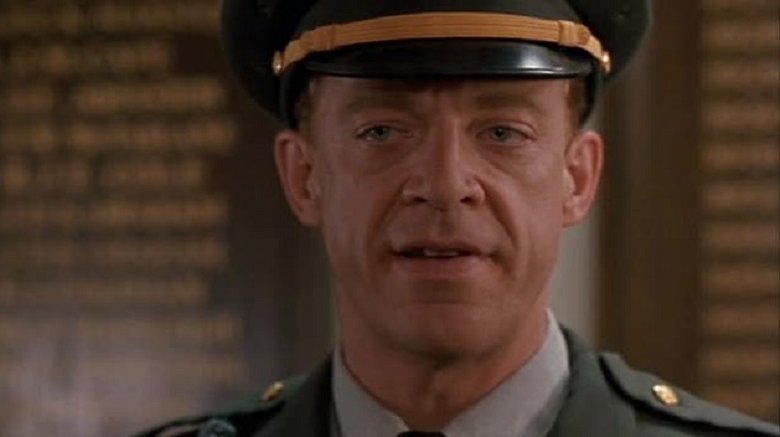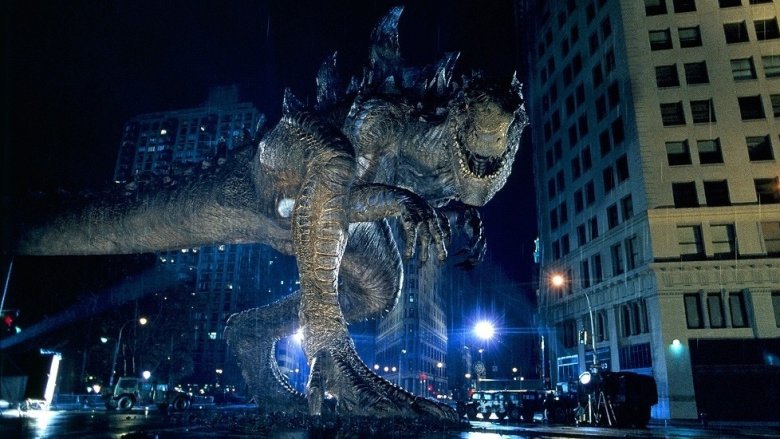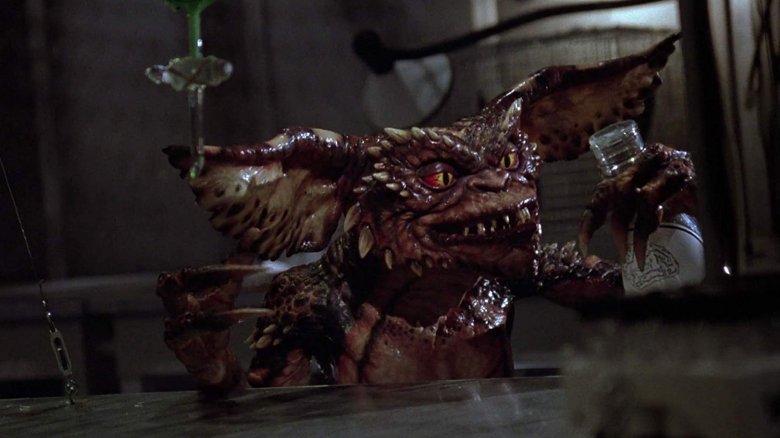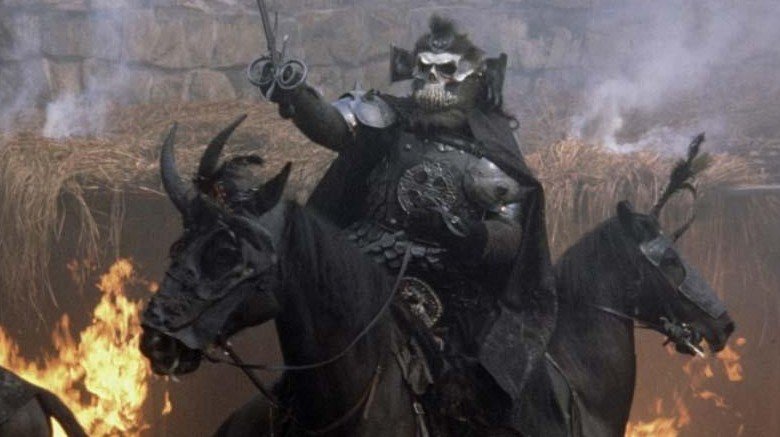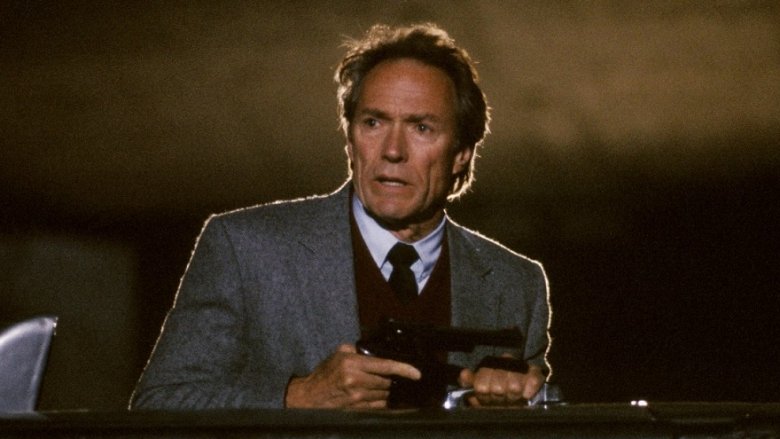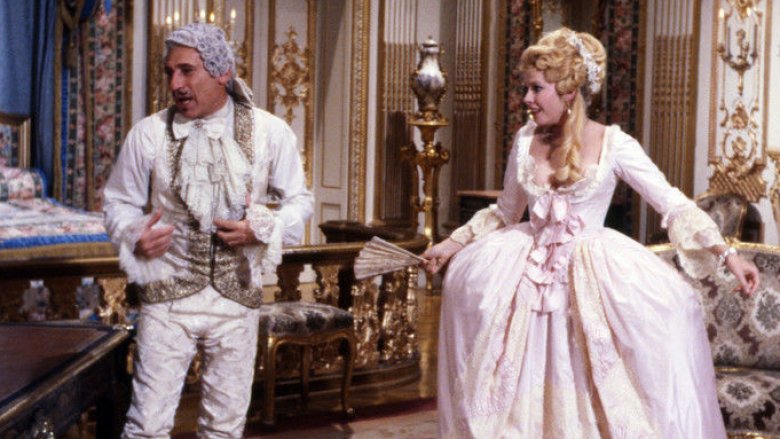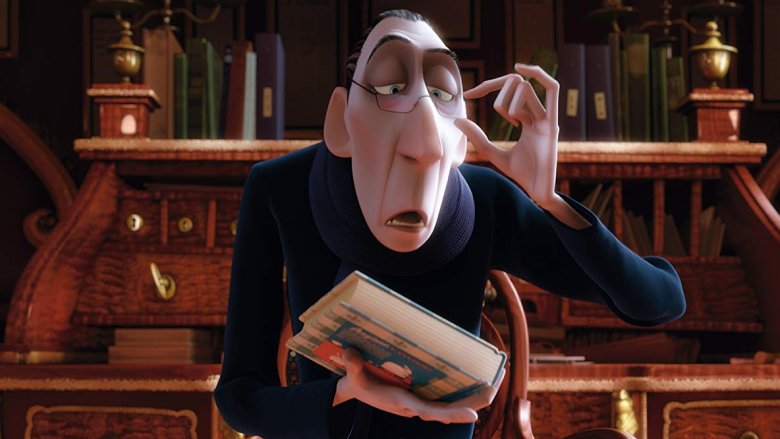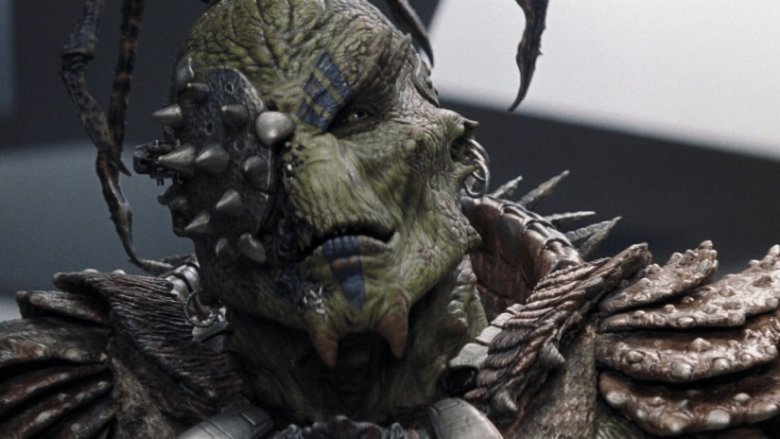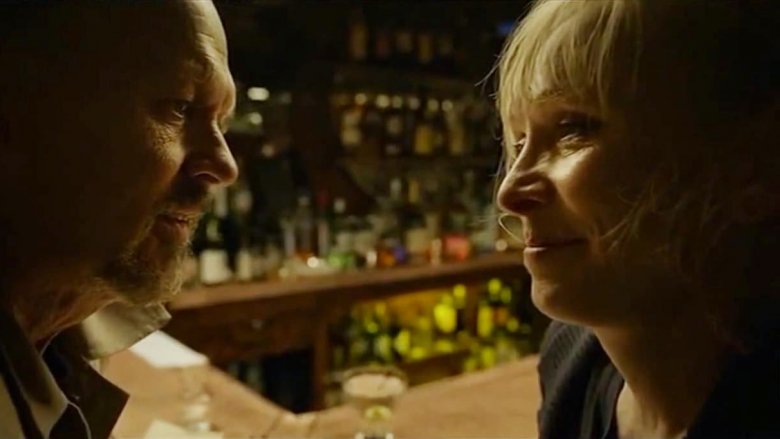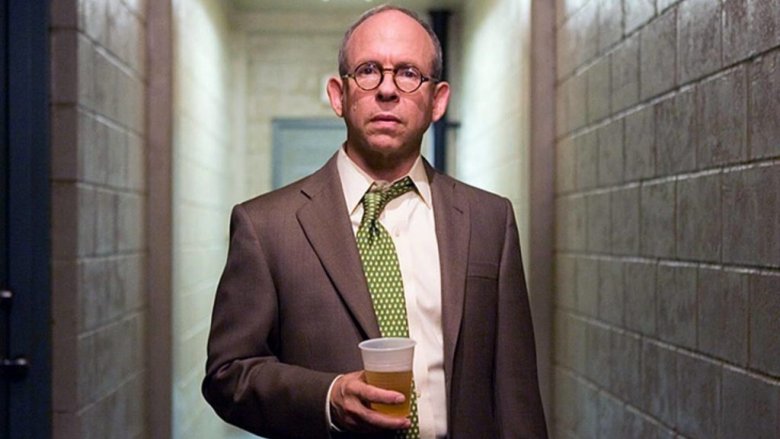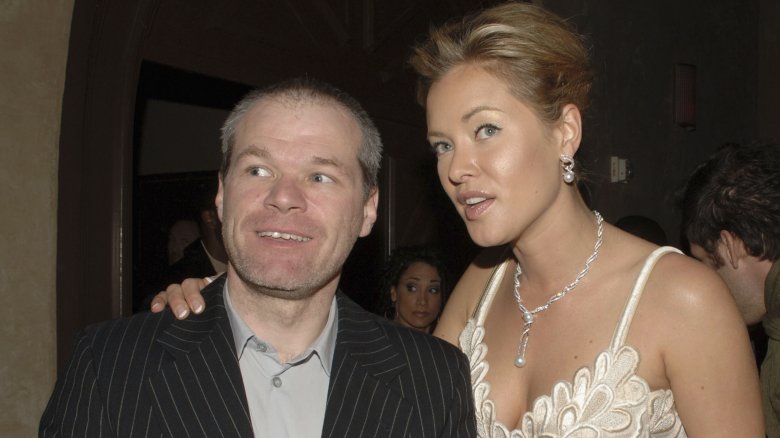Movies That Fired Back At Critics
Being a critic seems like an easy job. You get paid to give your opinion about something. Everybody has opinions! But it can actually be extremely difficult to judge something based on its merits, rather than your preconceived notions. It can also be extremely difficult to explain why something is good or bad, especially in a way that entertains, educates, and enlightens.
Even worse, sometimes the objects of your criticisms will fight back.
Movie critics are dancing in particularly dangerous territory. They're dealing with powerful studios and, oftentimes, very powerful directors and producers. A winning review can make or break a film looking for success, and it can be the difference in millions of dollars in profit.
As you can imagine, that means some critics find themselves the targets of angry filmmakers. Some movies just target "critics" in general, while others take out their ire on specific men and women who judge their work. So today, we're looking at some of the movies and directors who've fired back at critics over the years.
The Ref got revenge on Gene Siskel
Sometimes payback is a long, convoluted process. It can be so satisfying to set up a perfect, humiliating revenge scheme. Other times, you just push someone because they told a mean joke about you. That's essentially what happened when Richard LaGravenese wrote The Ref.
A few years prior to the release of The Ref, LaGravenese's The Fisher King was nominated for several Academy Awards, including Best Original Screenplay. Gene Siskel, of the legendary Siskel and Ebert, said he believed The Fisher King was the least deserving in any of the major Oscar categories. So yeah, he was doing his job.
LaGravenese took a personal offense to that, so when he wrote The Ref, he decided to name a despicable character "Siskel" to get back at the critic. In the film, Siskel is blackmailed with some incriminating pictures. Even better, according to the LA Times, Siskel didn't even know about the revenge until he sat down to watch the film and heard his own name. LaGravenese even confirmed that he named the character as revenge for Siskel's words about The Fisher King.
Godzilla fired back at the most famous film critic
Godzilla may be the king of the monsters, but he's had quite a rollercoaster of releases over the decades. Unfortunately, Roland Emmerich's 1998 version is definitely not considered one of the best.
Of course, if you'd asked film critic Roger Ebert, he would've probably said that was true about most of Emmerich's movies. See, Emmerich has always focused on spectacle over substance, and Ebert wasn't kind to his work. As a result, Emmerich planned out the perfect revenge. When it came time to name the incompetent mayor in Godzilla, he knew just what to call him: Mayor Ebert. Even better, his assistant would be named Gene, like Gene Siskel! Ha! That'll show 'em!
Ebert calmly addressed the, uh, "homage" to him and his partner when he wrote his review of the film. He bemoaned the fact that he wasn't "squished like a bug" and felt that Emmerich let him off lightly. He also dropped this bomb on the film, as only Roger Ebert could: "Going to see Godzilla at the Palais of the Cannes Film Festival is like attending a satanic ritual in St. Peter's Basilica. It's a rebuke to the faith that the building represents."
Somehow, it feels like Ebert won this fight.
Gremlins 2: The New Batch committed meta-murder
Gremlins 2: The New Batch is an odd duck of a film. It's almost an entirely different tone than the first film, and while both have their merits, the sequel is going more for slapstick silliness than the bizarre scares of the first Gremlins. Director Joe Dante also decided he would use Gremlins 2 to strike back at a critic who disliked the first movie. This strange little jab got even weirder when the critic agreed to play himself in the movie.
Leonard Maltin is the critic in question, and try to follow this meta moment. Maltin appears as himself in Gremlins 2, criticizing the first Gremlins. He holds up the movie and claims he'd rather have root canal surgery than watch it again. And that's when the gremlins attack him, presumably strangling him to death as the screen cuts away. The scene raises so many questions, and it's just so weird. Kudos to Maltin for being game for this bizarre little appearance, and kudos to Dante for being able to handle the criticism.
George Lucas used Willow to attack a legendary film critic
Pauline Kael has been the target of more than a few angry directors. After all, she was the film critic for The New Yorker for over two decades, and she was well known for not pulling any punches in her reviews. And when George Lucas stepped out of the galaxy far, far away and tried his hands at high fantasy with Willow, he decided to strike back at the opinionated critic.
One of the villains in Willow is a massive general who destroys without thinking. His name, of course, is Kael. The real Kael had never been a fan of Lucas' work — she referred to Star Wars as "an epic without a dream" and compared it to "taking a pack of kids to the circus." Lucas responded by impaling his version of Kael in Willow and throwing him off a staircase. Never one to back down from a fight, Kael fired back in her Willow review by making fun of Lucas' costly divorce from Marcia Griffin. This little back-and-forth became so well-known that it was even referenced in her obituaries, proving that Kael was one stone cold critic.
Things got super creepy in The Dead Pool
No, no. Not Deadpool. We're talking The Dead Pool, Clint Eastwood's fifth go around as Dirty Harry. Pauline Kael, infamous New Yorker film critic, was never a fan of Eastwood. She once referred to the actor as a "tall, cool cod" who "removes the last pretensions to humane feelings" from his movies. According to Kale, he was "a man who essentially stands for nothing but violence,” and in her review for Magnum Force, she wrote he was a ”hero of a totally nihilistic dream world."
So naturally, Eastwood responded in a totally normal and not at all terrifying way. Oh, wait, no, just kidding. He had a critic character who looked like Kael almost get raped before being brutally murdered.
In The Dead Pool, the character's name is Molly Fisher, but she's made to look like the recognizable Kael. A knife is held to her throat, and the killer says to her, "Do you ever notice how time seems to slow down at night? Just like in my films — a dream world."
Quite a coincidence that he would use the "dream world" line right out of Kael's review for Magnum Force, isn't it?
Mel Brooks didn't hold it in for History of the World: Part I
Not every filmmaker has to decide to attack one specific critic. Some, like Mel Brooks, just throw everything at the entire profession, laughing all the while. One of the best examples comes from History of the World: Part 1, where Brooks shows his audience what he really thinks of how critics do their job.
The scene in question features a caveman painting on the walls while his friends stand around him, offering encouragement. "The first artist was born," the narrator intones, before adding, "and, of course, with the birth of the artist came the inevitable afterbirth: the critic." The shaggy cave-critic looks at the painting, then stands up on a rock and pees all over it, while the dejected artist looks on.
Brooks seems to be saying that critics do none of the hard work, then they come in and piss all over everything. Tell us how you really feel, Mel.
Ratatouille took aim at critics with Anton Ego
Ratatouille is an often forgotten masterpiece in Pixar's catalog. It doesn't target any specific critic, but Anton Ego is certainly a send up of the occupation in general. However, the film actually makes Ego into a fully realized character by the end of the story, rather than making him some sort of caricatured villain who never evolves.
Ego is arrogant and seems to relish in writing negative things about the dining establishments he visits. Since Remy comes from a family that doesn't care about or appreciate food the way he does, he subjects himself to Anton's critique in order to gain validation that he can't find elsewhere.
Like nearly everyone else in the film, Ego is impressed by Remy's food but horrified when he discovers that the impressive chef is a rat. However, rather than ending on a sour note, Ego eventually comes around and recognizes that Remy's genius is worth celebrating and sharing. It's a wonderful turn around for a big bad, and it shows that Pixar doesn't really think too harshly about their critics ... although they do enjoy poking fun.
Galaxy Quest's main bad guy has a familiar name
Galaxy Quest features some great performances from a truly impressive cast, which includes the likes of Sigourney Weaver, Alan Rickman, and Sam Rockwell. And while it's often forgotten today, the movie was definitely ahead of its time and still holds up as a brilliant Star Trek spoof. Plus, filmmaker Mark Johnson decided to insert a jab at his least favorite critic by naming the movie's big, bug-like bad guy after Andrew Sarris.
Sarris was the film critic for The New York Observer, and he'd taken aim at some of Johnson's previous films. Entertainment Weekly posits that Sarris' review of The Natural, which he called "a pathetic strikeout," may be what turned Johnson against him. However, Sarris wasn't bothered by Johnson's petty naming convention. When asked about it, Sarris had this assessment of the film and of Johnson: "It probably won't make enough money for me to sue for $10 million. I'm 70 years old. This guy wants to insult me? Oh, boohoo. As long as they spelled my name right, I'm okay."
Birdman's critic character is 'evil incarnate'
Birdman is a lot of things — an impressive bit of filmmaking and acting, a nuanced portrayal of the struggles of being an artist, and a self-aware and sensitive look at the way insecurities affect everything about our lives. One thing it isn't, however, is a sensitive or flattering look at being a critic.
The Chicago Tribune sums up Tabitha's (Lindsay Duncan) role in Birdman (and the role many critic characters play) as "a convenient antagonist" with qualities like "imperviousness, dismissiveness, cruelty, defensiveness, callousness, conservatism, ignorance, and, in the case of Tabitha in Birdman, being as she has apparently decided on a lousy review in advance, evil incarnate."
Director Alejandro González Iñárritu seems to be speaking to all critics through Michael Keaton's character when he tells Tabitha, "None of it costs you anything. You risk nothing." Artists know that they often have to take big risks, and the idea of someone seeing that risk and panning it has to be devastating. Interestingly, Birdman ends with a botched suicide attempt on stage, causing Tabitha to write a glowing review of the play. It's a dark commentary on what some artists have to do to find success.
M. Night Shyamalan tried to get revenge with Lady in the Water
After finding massive success with The Sixth Sense, M. Night Shyamalan's stock began to drop. Many critics started seeing him as a bit of a one-trick pony, and the idea that every one of his films was based around a "twist" took on a life of its own. Clearly, Shyamalan grew tired of his critics by the time he released Lady in the Water, and it shows in the character of Farber.
Farber is a petty and cynical critic who seems to be in the film just to give Shyamalan a punching bag. In a well-done movie, a character like this might make more of an impact. In a film like Lady in the Water, it comes across as petty and detrimental to the rest of the movie. It's especially telling when the critic is murdered and devoured by a hulking, mystical wolf-monster.
In a review of the film for The Guardian, critic Peter Bradshaw reacted to the character by writing, "I was ashamed ... ashamed ... that I had ever given this incredible idiot M. Night Shyamalan anything approaching a good review." He then blames himself (and other critics) for being fooled into giving Shyamalan success. Honestly, we think that's a bit unfair, but there's no denying it's a brutal burn.
Velvet Buzzsaw fired at film critics in super bloody fashion
Velvet Buzzsaw is ... a weird film. That's about the only way to sum it up. Part biting satire, part gruesome horror, it's a strange combo of hyper self-awareness and blissful blindness to its own problems. But while it's prompted a lot of discussion, one thing we can all agree on is that Velvet Buzzsaw has a lot to say about critics.
In the film, nearly everyone who's brutally killed is someone who doesn't actually make art. Instead, the victims are those who judge and commodify it. CreativIndie writes that the film seems to suggest that the concept of art as business is a true impossibility. And judging by all the nasty death scenes, the film seems to think those who try to merge art and business together are scumbags who deserve some brutal justice.
Director Dan Gilroy has often had unsubtle messages in his films, often about things he views as more dangerous than many realize. And up until the very end of Velvet Buzzsaw, you just know all these art critics are going to get what's coming to them — killed by the very pieces they criticize.
Uwe Boll literally fought his critics
Uwe Boll has made some pretty terrible films in his career, often based on video games. Postal, House of the Dead, and Alone in the Dark are some of the many ugly beasts that Boll has brought to the silver screen, and his films are often cannon fodder for critics. But one day, Boll got fed up with being a punching bag, so he, uh, offered to be a punching bag. He challenged his critics to a series of boxing matches, and anyone was welcome.
However, Boll left out the small detail that he'd spent years training as a boxer.
Four critics took the challenge, and Boll agreed to fight them all in a row. He knocked out his first opponent in round one, his second opponent conceded before the fight even started, and he KO'd the last two.
After the fights, Boll said this about his opponents: "They were badmouthing me, but they showed balls going into the ring. Now they are brain dead, and they will like my movies."

